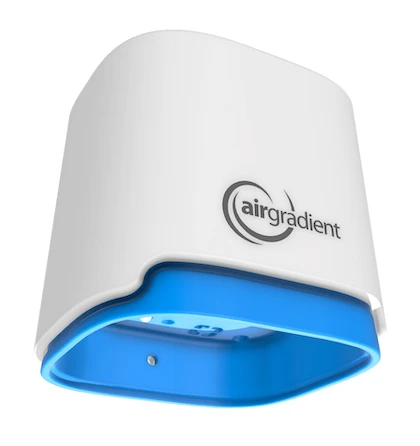Spotlight
Knowledge Base
Here you find important information for the co-location testing.
At AirGradient, we actively participate in initiatives that help communities monitor and improve air quality. From donating monitors to underserved areas to collaborating with schools and organizations, our projects aim to raise awareness, provide real-time data, and promote healthier environments.
We are currently testing the Open Air outdoor monitor on more than 20 sites around the globe.
Find the Presentation here.
Dr. Titaporn Supasri
National Astronomical Research Institute, ThailandProfessor Rod Jones
University of CambridgeDr. Henry Burridge
Imperial College LondonThe AirGradient Monitors have some unique characteristics that sets them apart from other monitors in the market.
Open Air will focus on PM2.5 measurements with up to two independent PM sensors. Additionally, it measures temperature and humidity and other sensor modules can be added.
With our partnerships with research institutions in four continents that test the monitor against their reference instruments we can develop very accurate compensation algorithms.

The Open Air monitor is fully open-source and open-hardware licensed under CC BY SA and thus allows researchers and makers to easily make adjustments in the hardware as well the firmware.
The open design allows easy access to an accurate low-cost monitor for countries and communities that are not blessed with high budgets -but are often in areas with high air pollution.
We are proud to be the monitor provider for the SAMHE study in the UK.
SAMHE (Schools’ Air quality Monitoring for Health and Education) is a collaboration between five UK universities (University of Cambridge, Imperial College London, University of York, University of Surrey and University of Leeds) and the UK Health Security Agency (UKHSA).
It brings together scientists, students and teachers and establishes a network of AirGradient air quality monitors in schools across the UK, creating an unparalleled dataset which will help researchers better understand schools’ indoor air quality.
SAMHE aims to give school communities the power to understand and improve their air quality. A Web App allows students and teachers to interact with the data from their monitor. They are able to see how their air quality changes over the course of time and how it can be influenced. This creates opportunities for students to be scientists and do hands-on experiments with their monitors.
AirGradient’s dedication to research and experience of working with school’s on the ground, made it an ideal partner for the SAMHE project and AirGradient was selected to provide more than 1000 AirGradient ONE air quality monitors for this project.
Besides the supply of the hardware, a key feature of AirGradient’s offer was the ability to customize the firmware of the monitor to meet specific research requirements, e.g. the dynamic customization of CO2 color bands and the frequency of data transmission.
Here you find important information for the co-location testing.